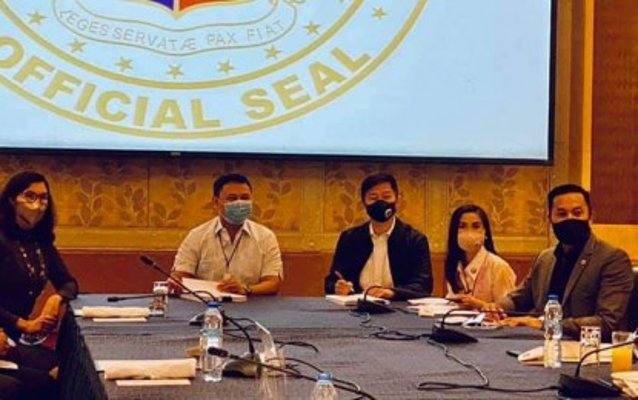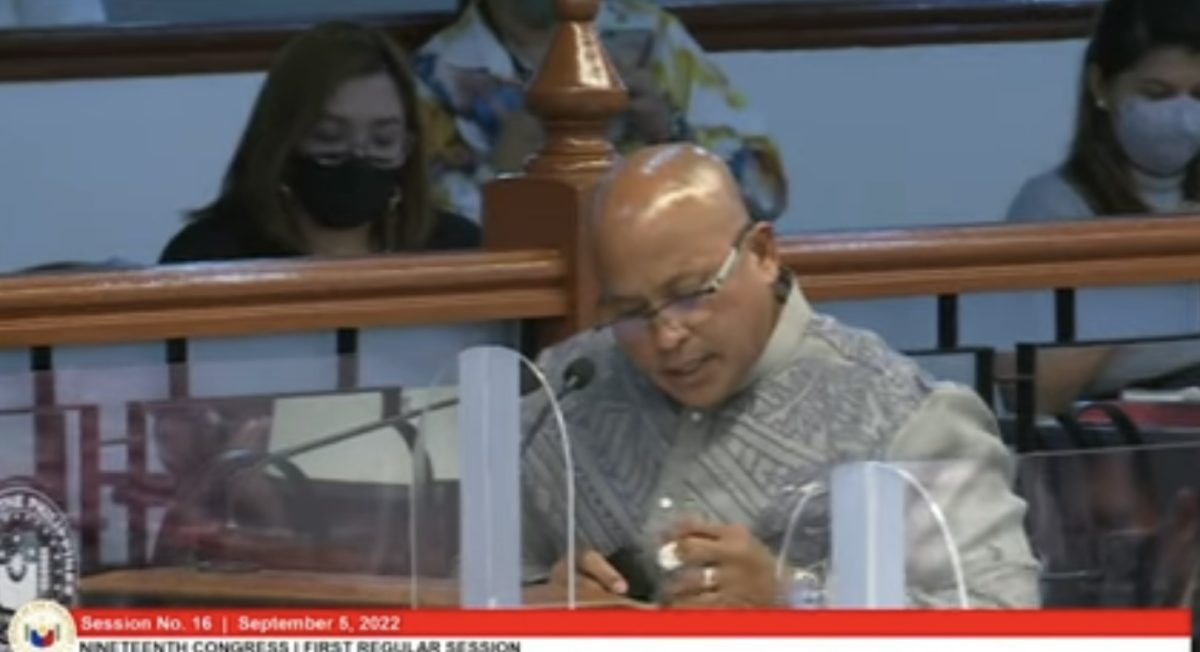President Rodrigo Duterte’s recent veto of the proposed SIM card registration law should call attention to the legislators’ practice of inserting new provisions in bills during bicameral conference committee (bicam) meetings, no matter how well-intentioned the insertion may be.
This is more than the issues of privacy rights and “rider” provision. It involves an apparent abuse in the exercise of legislative powers by a joint committee of senators and congressmen in threshing out conflicts involving bills approved on third and final reading by the Senate and the House of Representatives.
Duterte vetoed the consolidated version of Senate Bill 2395 and House Bill 5793 that would have required Filipinos to register their subscriber identity module (SIM) cards and use their real names and phone numbers when creating social media accounts.
The bill may have noble intentions: to curb fraud and other crimes aided by SIM cards and eliminate online trolls who use fake accounts on social media.
However, the president rightly pointed out that “the inclusion of social media providers in the registration requirement was not part of the original version of the bill and needs a more thorough study.”
The 15 bills filed and discussed in the House and seven in the Senate all pertain only to the registration of SIM cards. The long title of SB 2395 is “An Act to Eradicate Mobile Phone-aided Terrorism and Criminal Activities, Mandating for this Purpose Ownership Registration of All SIM Cards for Cellular Phones.” The House version is simply titled “An Act Requiring the Registration of Subscriber Identity Module Cards.” Both bills have similar short titles, SIM Card Registration Act.
From the title alone, it is obvious the measure pertains to the registration of SIM cards. Nowhere does it include social media.
House Deputy Speaker Wes Gatchalian said the provision, which caused the bill’s veto, was a last-minute insertion by Senate Minority Leader Franklin Drilon.
Drilon said he authored the provision requiring the use of the real name and phone number when creating social media accounts “to address the anonymity on the internet and the social media that allowed an environment for troll accounts and fake news.”
With the veto, he said, “the president lets trolls thrive, spread lies and hate, and fuel discord and division.”
Going by the rules of the Senate and the House, the practice of inserting provisions that were not discussed during committee hearings and plenary deliberations has been legitimized.
The Senate rules say: “The authority given to the Senate conferees theoretically is limited to matters in disagreement between the two chambers. They are not authorized to delete provisions or language agreed to by both the House and the Senate as to draft entirely new provisions.
In practice, however, the conferees have wide latitude, except where matters in disagreement are very specific. Moreover, conferees attempt to reconcile their differences, but generally they try to grant concessions only insofar as they remain confident that the chamber they represent will accept the compromise.”
On the part of the House, its rules define the function of the bicam to “settle, reconcile or thresh out differences or disagreements on any provision of the bill.” However, it adds, “The conferees are not limited to reconciling the differences in the bill but may introduce new provisions germane to the subject matter or may report out an entirely new bill on the subject.”
The bicam then drafts a report on the changes made in a bill and this is then presented to both the Senate and the House for ratification. Once ratified, an enrolled copy of the bill, signed by the Senate president and the House speaker, is submitted to the president who, in turn, can either sign it into law or return to Congress with his veto message.
Insertion in bills during bicam deliberations has become a frequent practice, particularly in the annual appropriation or national budget bill in which the senators and congressmen insert funding provisions or realign budget allocations for their “pet” projects.
According to Gatchalian, one of the authors of the House version of the SIM card bill, Drilon’s insertion, which was approved by the bicam, as well as the Senate and the House that ratified the bicam report, “is totally not in line with the essence” of the bill and that “nothing” in it specifies “clear guidelines and how to register in such a broad environment (the internet).”
Sen. Panfilo Lacson, one of the authors of the Senate version of the bill, said the provision mandating social media registration “could be violative of the ‘one subject, one title rule’ as defined under the 1987 Constitution,” noting the absence of safeguards or guidelines in the provision, which is not even covered by the title of the measure.
Section 26 (1), Article VI of the Constitution, provides that “every bill passed by the Congress shall embrace only one subject which shall be expressed in the title thereof.”
Drilon’s intent in proposing the insertion may have been good, for the purpose of eliminating fake accounts and trolls on the internet. However, it needs to be fleshed out thoroughly and be covered by a separate measure, rather than being a rider provision in the SIM card registration bill.
Drilon rightly said that “political trolling, as we’ve seen these days, is a thriving business.” He may also be correct in describing the presidential veto as a “big win for troll farms,” but this should serve as a lesson to legislators to put an end to this practice of introducing new provisions in a bill at the bicam conference committee.
Congress did the same thing in the proposed “Vaporized Nicotine and Non-Nicotine Products Regulation Act” in which the phrase “and their devices, and novel tobacco products” was inserted to cover future industry creations that fit the definition of novel tobacco products.
Several medical organizations, health advocates and former health secretaries have joined the health, education and finance departments in calling for a presidential veto of the bill. The Senate and the House ratified the bill last January, but the enrolled copy has yet to be submitted to Malacañang for the president’s action.
The president should be consistent in rejecting congressional insertions in the bicam that are not in the original versions of the bills and have not been thoroughly discussed or debated in the committee hearings and plenary sessions.
The views in this column are those of the author and do not necessarily reflect the views of VERA Files.
This column also appeared in The Manila Times.

